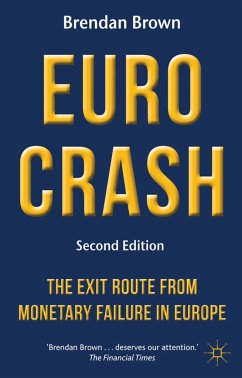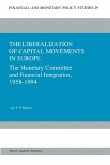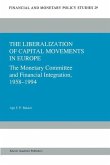Euro Crash turns the conventional diagnosis of the failure of the European Monetary Union on its head.
It argues that the main problem was not sub-optimal currency areas nor profligate government spending but fatal flaws in monetary design and an appalling series of policy mistakes by the European Central Bank (ECB).
Brendan Brown shows how the inflation-targeting regime established by the ECB right at the start, coupled with the reckless dismantling of the old Bundesbank's monetary framework, contributed decisively to the ensuing gross failures. Further factors in the fatal cocktail included long-term French monetary nationalism, empowered by a French President at the head of the ECB, and the succumbing of euro officials to the same deflation phobia which had gripped the Federal Reserve.
In exploring these themes, Dr. Brown draws on both traditional monetarist and Austrian School economic literature. He demonstrates that the European Sovereign Debt Crisis is in fact the bust phase of a credit bubble which to a critical extent was manufactured in Frankfurt's Euro Tower.
This new edition of Euro Crash has been fully updated, and the argument refined, to take advantage of recent facts and new insights. It includes a new introduction which sets the scene in light of the momentous events since the first edition was written. In the final chapter, Dr. Brown provides an examination of radical ways forward. He proposes that there is only one way which has any real prospect of salvaging European monetary integration - that is to start again. He plots a future which rejects a political, fiscal or transfer union in Europe and outlines an exit procedure for any member country from EMU which would be fully legal and feasible.
This book should be of great interest to all those searching for explanations and prescriptions outside the box of conventional thinking and beyond the 'passing the buck' remedies of euro-officials.
It argues that the main problem was not sub-optimal currency areas nor profligate government spending but fatal flaws in monetary design and an appalling series of policy mistakes by the European Central Bank (ECB).
Brendan Brown shows how the inflation-targeting regime established by the ECB right at the start, coupled with the reckless dismantling of the old Bundesbank's monetary framework, contributed decisively to the ensuing gross failures. Further factors in the fatal cocktail included long-term French monetary nationalism, empowered by a French President at the head of the ECB, and the succumbing of euro officials to the same deflation phobia which had gripped the Federal Reserve.
In exploring these themes, Dr. Brown draws on both traditional monetarist and Austrian School economic literature. He demonstrates that the European Sovereign Debt Crisis is in fact the bust phase of a credit bubble which to a critical extent was manufactured in Frankfurt's Euro Tower.
This new edition of Euro Crash has been fully updated, and the argument refined, to take advantage of recent facts and new insights. It includes a new introduction which sets the scene in light of the momentous events since the first edition was written. In the final chapter, Dr. Brown provides an examination of radical ways forward. He proposes that there is only one way which has any real prospect of salvaging European monetary integration - that is to start again. He plots a future which rejects a political, fiscal or transfer union in Europe and outlines an exit procedure for any member country from EMU which would be fully legal and feasible.
This book should be of great interest to all those searching for explanations and prescriptions outside the box of conventional thinking and beyond the 'passing the buck' remedies of euro-officials.
'The majority of economic analysts, especially those in financial markets, follow governments, central banks and international institutions in trusting to large-scale macroeconomic forecasts...Brendan Brown...belongs to the select band of commentators who prefer to derive their analysis from the market prices of key variables. For this reason alone he deserves our attention.' - The Financial Times
'...an insightful little book...' - Welling@weeden.com
'...an insightful little book...' - Welling@weeden.com








